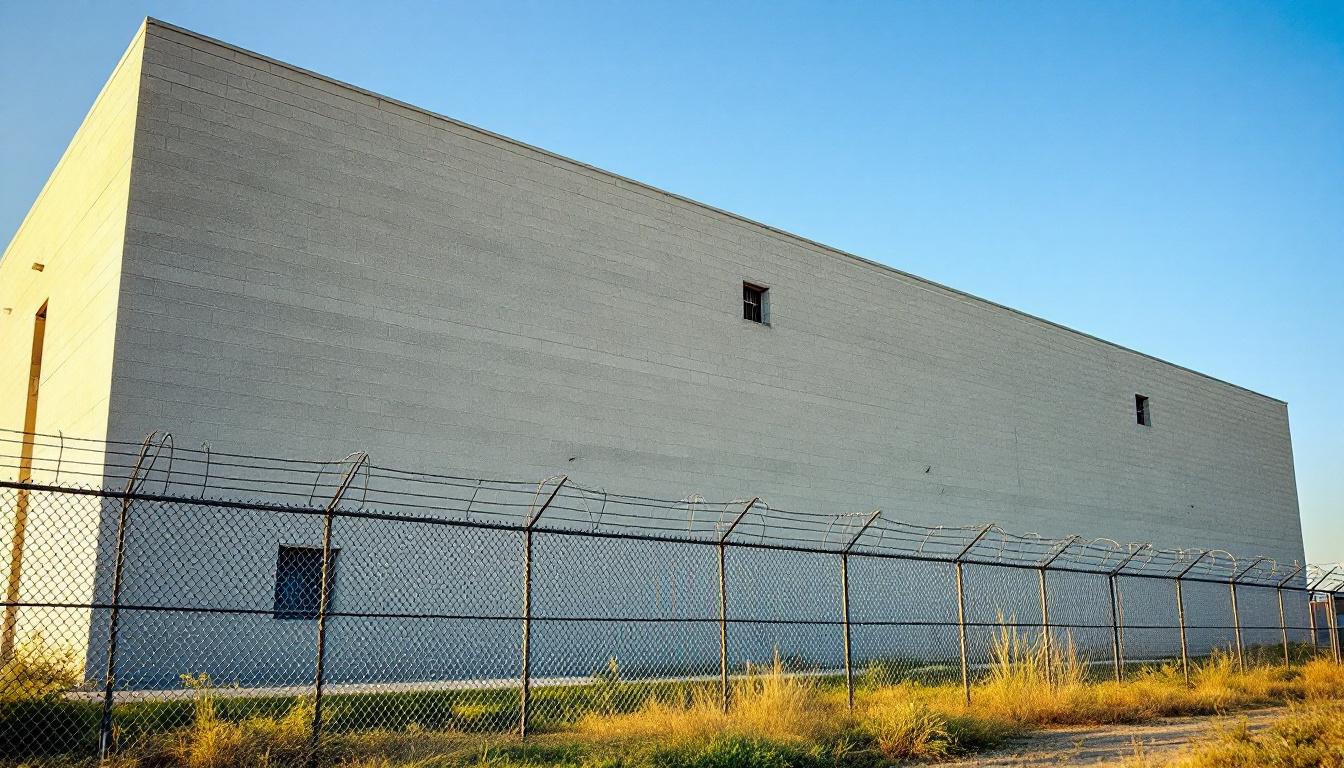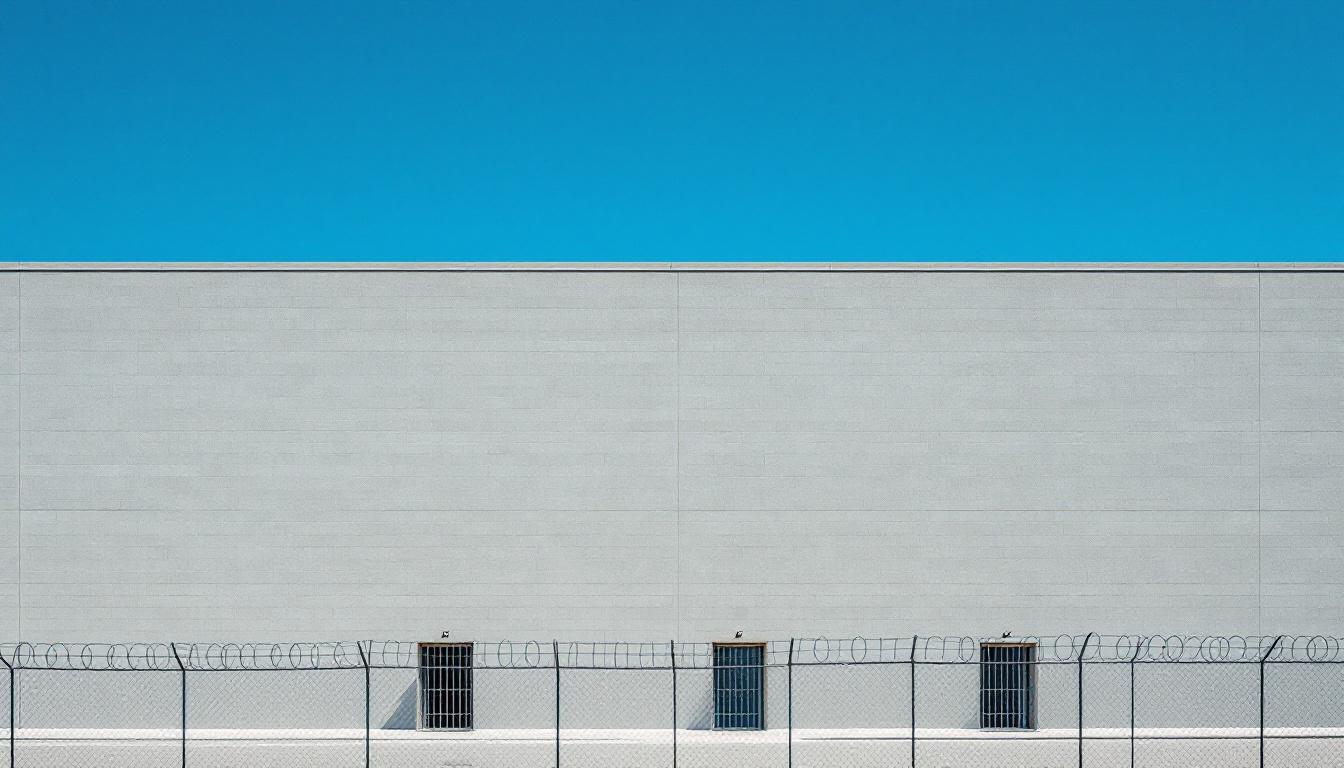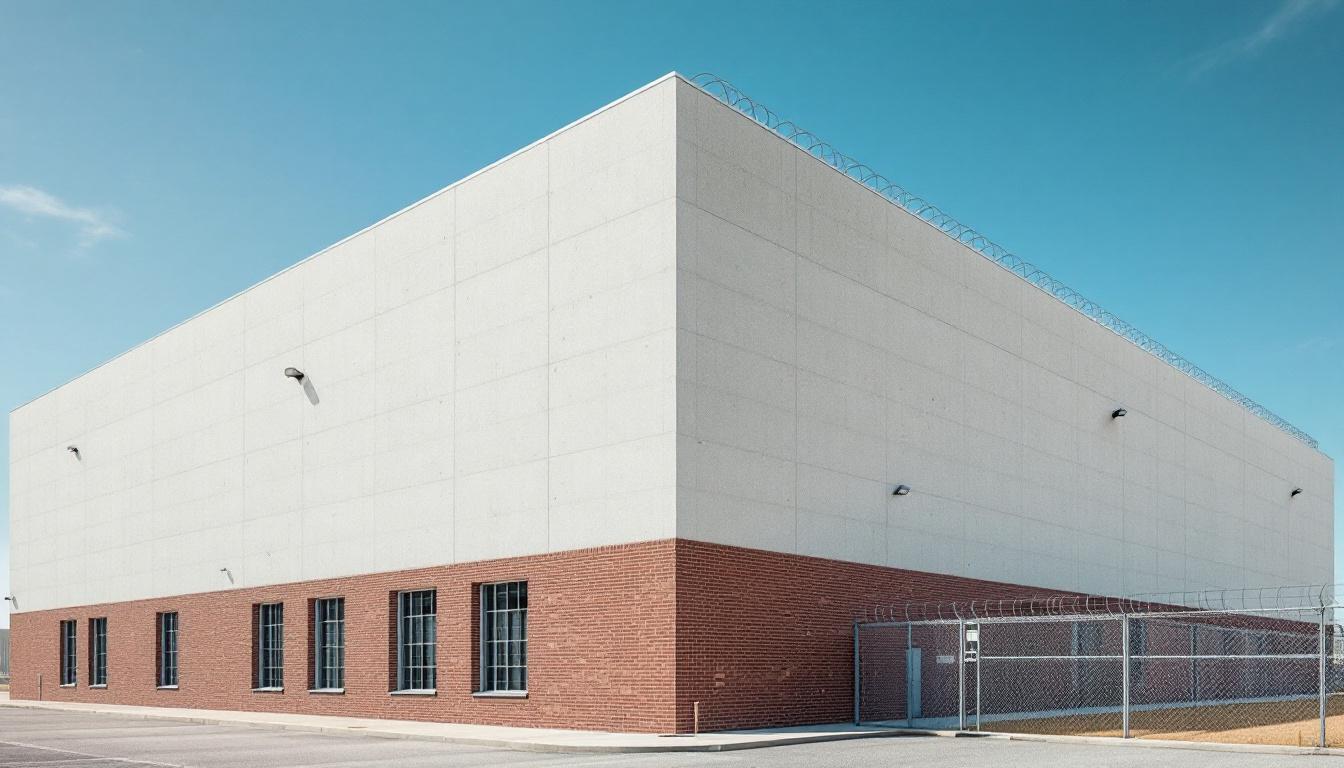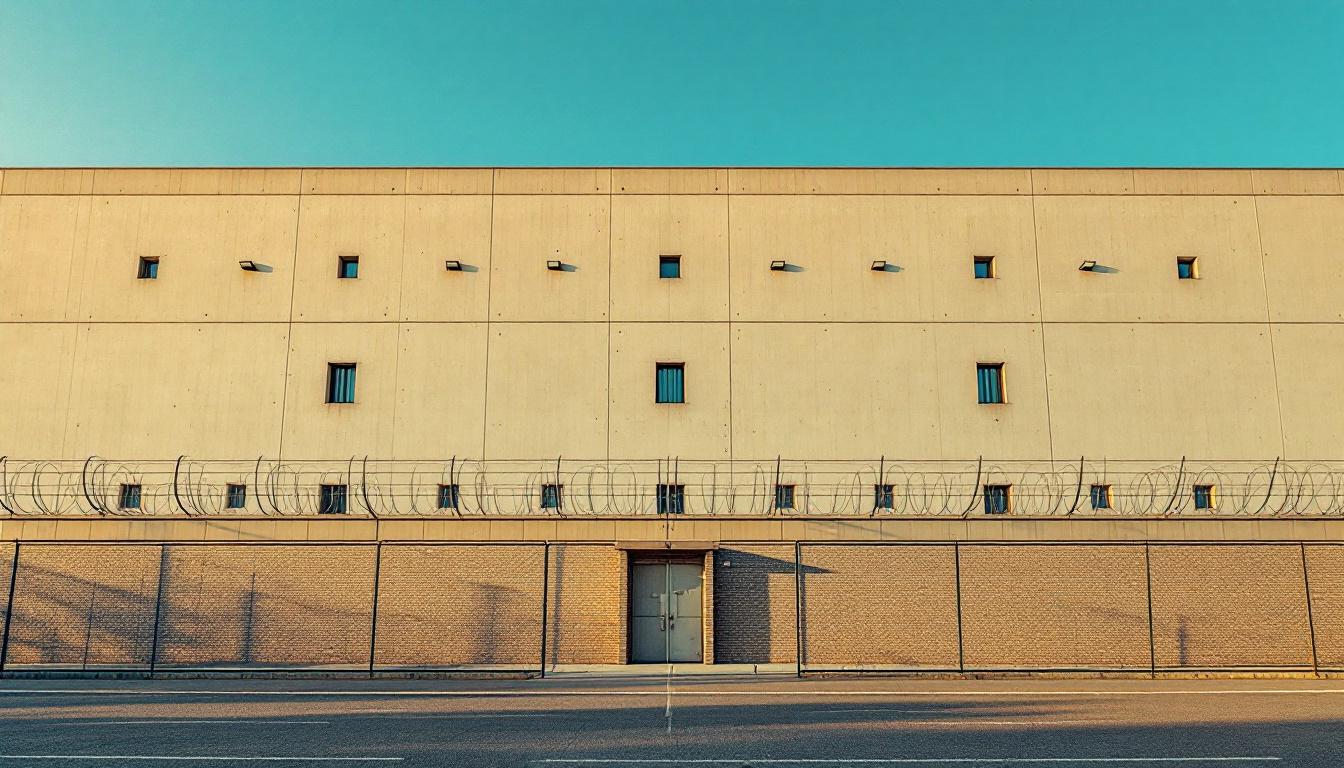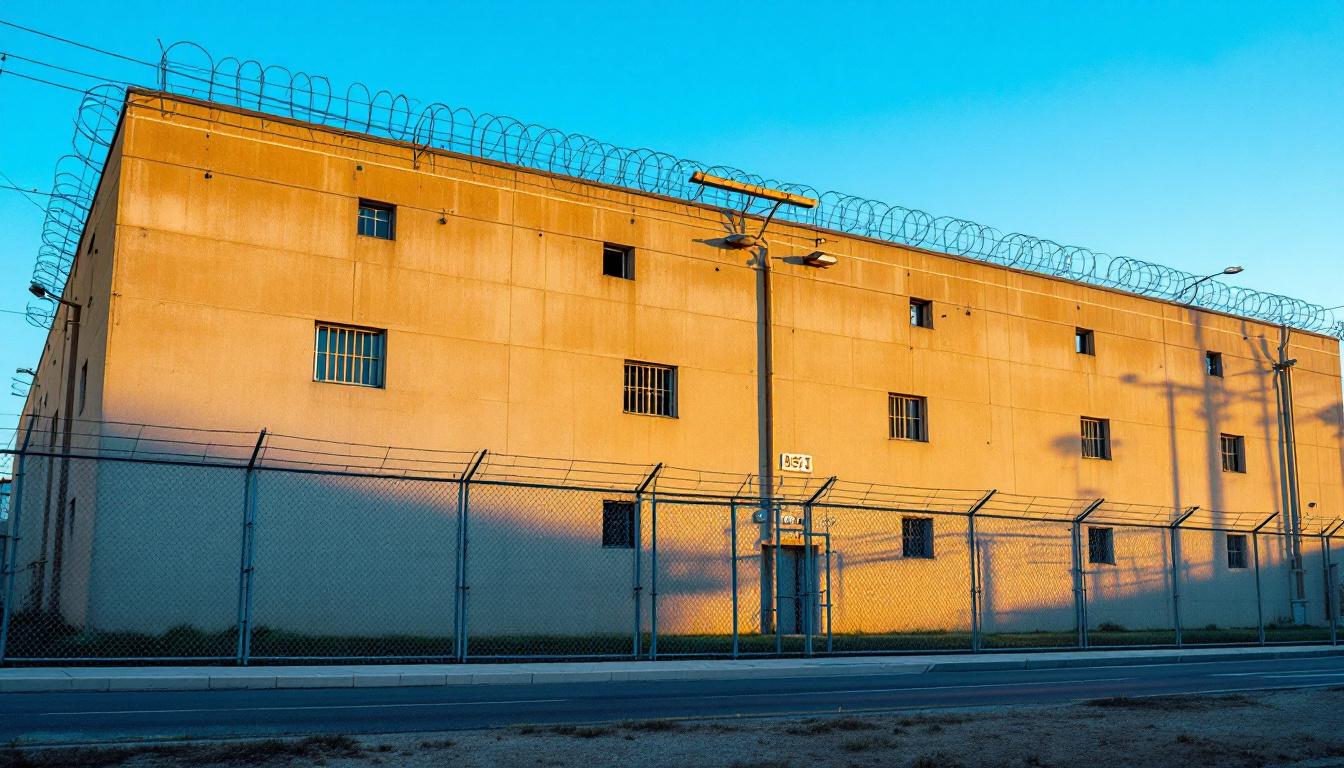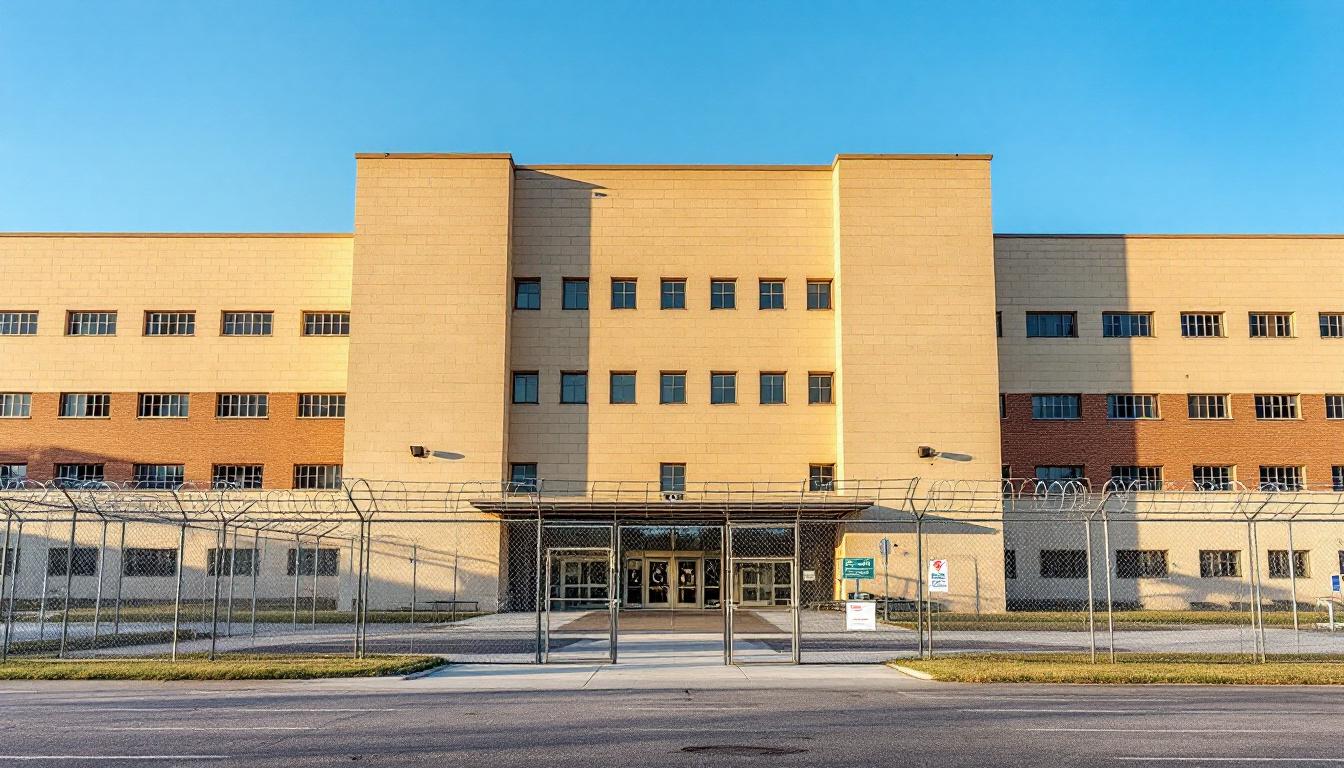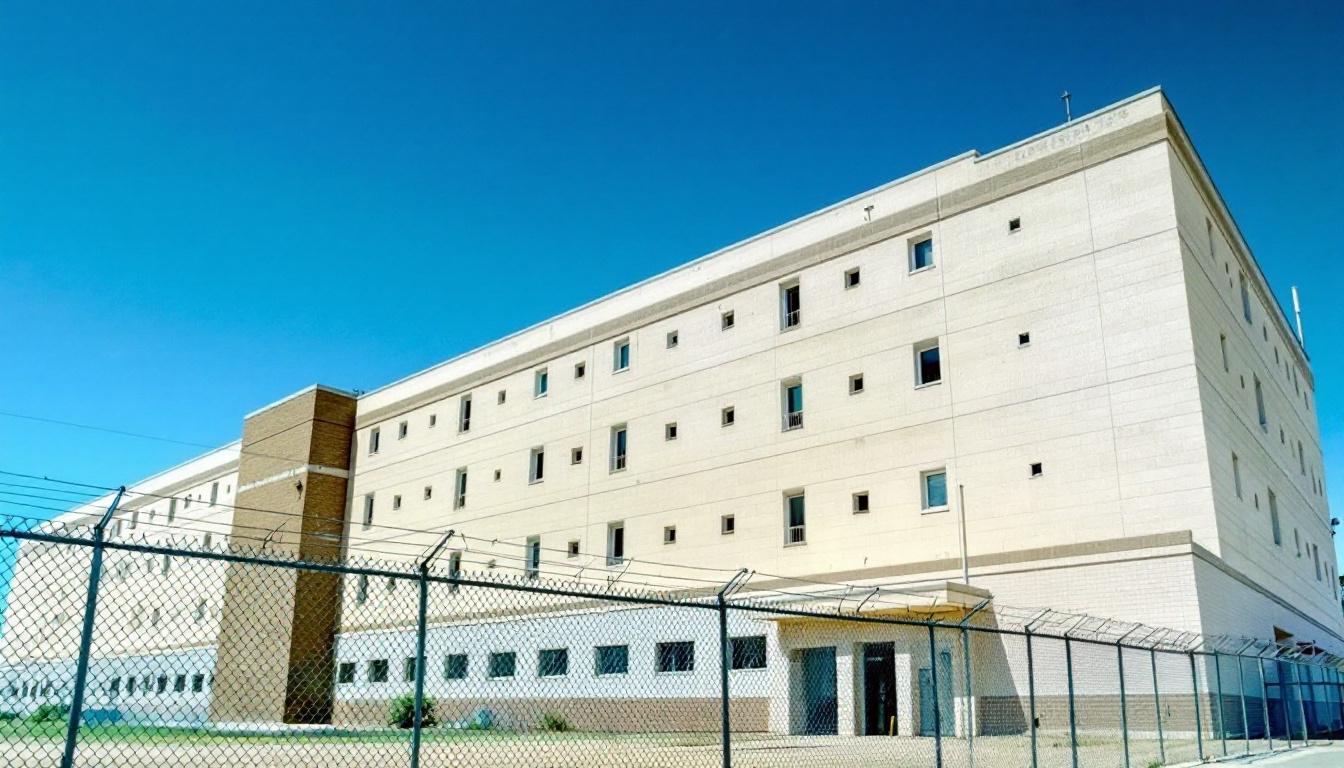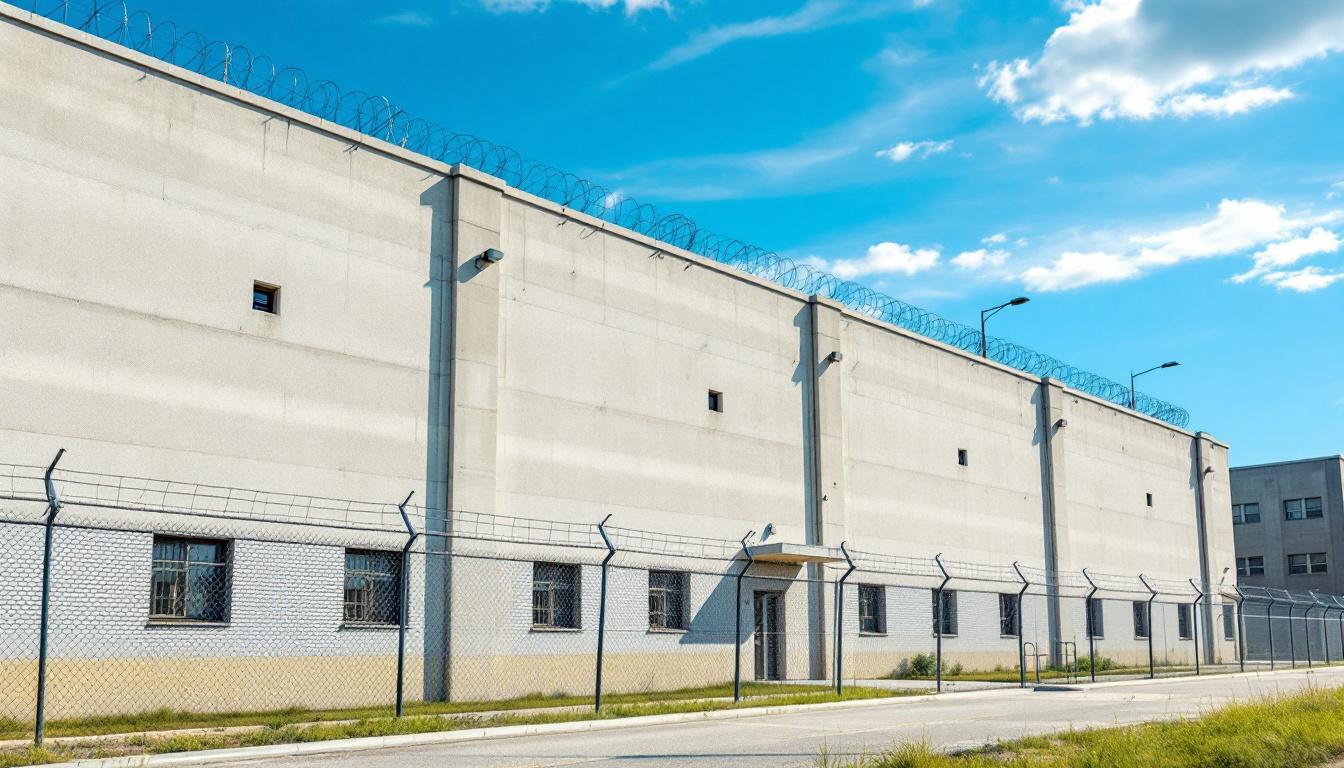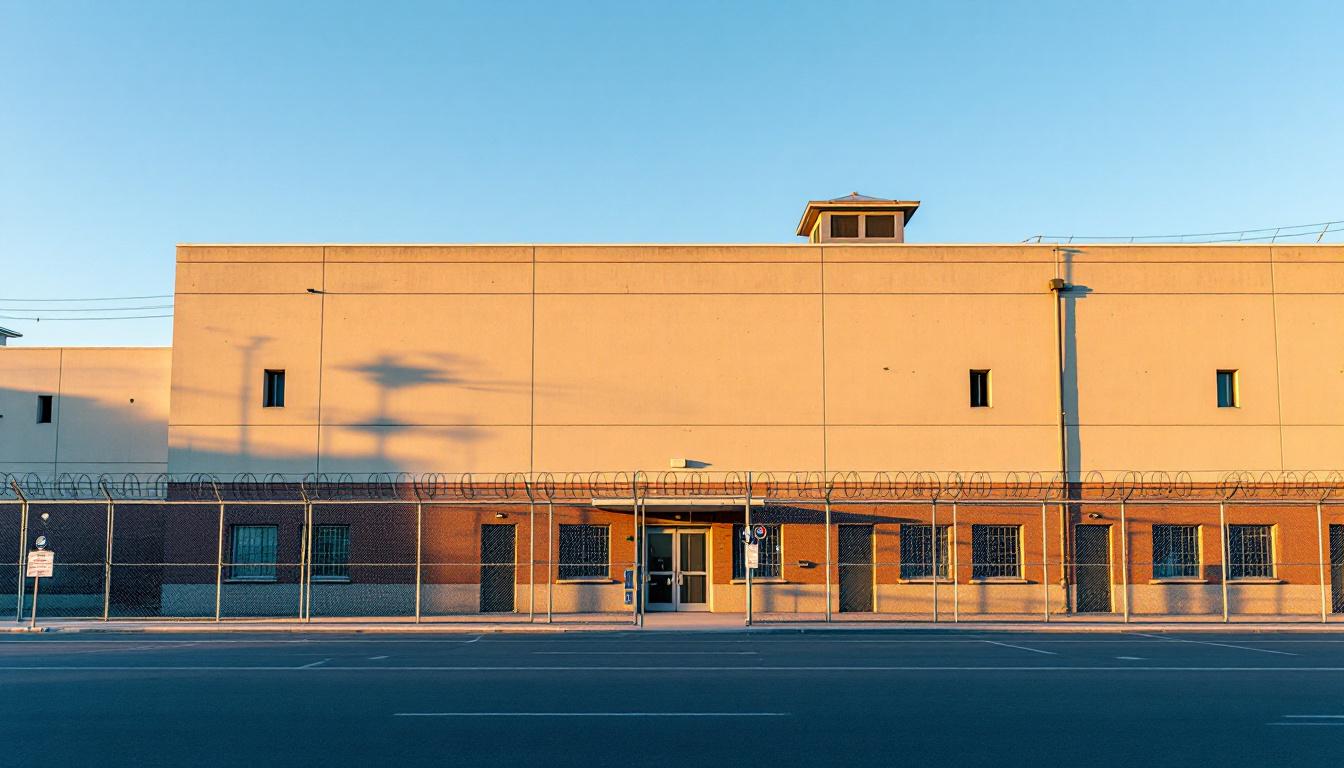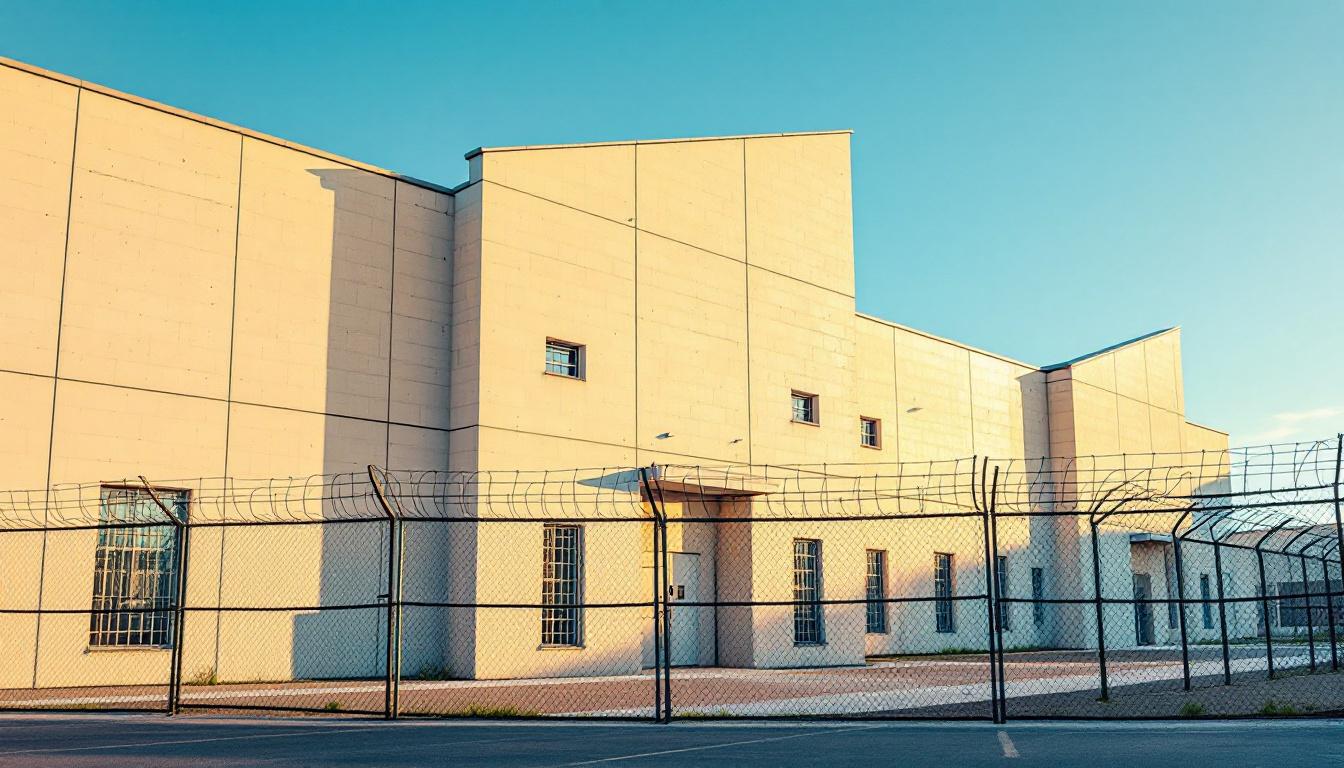
Quick Navigation
How to contact an inmate at Franklin County Adult Detention Center
This comprehensive guide will walk you through how to connect with an inmate at Franklin County Adult Detention Center. Follow the steps below to find an inmate and send letters and photos:
- Search for the inmate using our search tool below
- Create your account or log in to Penmate
- Write your message (up to 6,000 characters)
- Send instantly - inmates receive printed copies daily
Find an Inmate
Search for an inmate to start communicating today
Tip: You can search by first name, last name, or inmate ID number
To contact a person at Franklin County Adult Detention Center start by searching for the person on the official facility website. Perform a search by following these steps:
- Step 1: Enter their first name and last name into the search form and click "Search"
- Step 2: Locate their inmate record
- Step 3: Write down their Inmate ID and any housing information provided
Important! Be sure to enter the person's full name. Nicknames should not be used.
How to Send Messages to Inmates

You can use your phone or computer to send emails, letters, and photos to an inmate. Messages are sent electronically to inmate tablets or kiosks at the facility. If you would like to send a message, start by searching for an inmate at Franklin County Adult Detention Center.
Sending Photos and Postcards

A great way to send love and support to a loved one at Franklin County Adult Detention Center is to send photos and postcards. It only takes a few minutes to send photos from your phone and it makes a huge difference. You can also mail postcards with words of support and inspiration, or design your own postcard for special moments like birthdays and holidays.
Important! Be sure not to send any explicit photos or they may not be approved by the facility. You can also use a photo printing app like Penmate to make sure your photos are printed at the correct size (4x6 or 3x5) and are mailed according to the rules and regulations of Franklin County Adult Detention Center.
Frequently asked questions about Franklin County Adult Detention Center
-
How long does it take to deliver a message?
If you're sending an email message your letter is usually delivered within 24-48 hours. For messages sent via mail you should expect delivery within 3-7 days. All messages will need be approved by Franklin County Adult Detention Center.
-
How much does it cost to send a message to Franklin County Adult Detention Center?
You can send a message free using your phone or mail a message via USPS for the price of a $0.60 stamp and envelope. You can also purchase credits or e-stamps from services starting at $1.99.
-
What services can I use to contact an inmate at Franklin County Adult Detention Center?
Penmate
You can use Penmate to send letters and photos to an inmate from your phone. It's an easy way to stay in touch during your loved one's incarceration. Use the inmate locator to find an inmate's location and contact information, then you can send messages within a few minutes.
Securus messaging
Securus may be another option for communicating with an inmate at Franklin County Adult Detention Center. You can create a friends and family account and purchase credits to send messages. All messages will be reviewed and must be approved by the facility.
JPay
Some county jails and state prisons may support sending messages with JPay. You must register an account with the system, find your loved one, and purchase stamps to send messages. For some locations you can also attach photos.
Smart Jail Mail
You may also check if Smart Jail Mail is available at Franklin County Adult Detention Center. Smart Jail Mail is operated by Smart Communications and has contracted with some state and county jails. After purchasing credits, your messages and photos are sent to the facility, printed out, and then handed out to your loved one.
-
What is the mailing address of Franklin County Adult Detention Center?
Mailing address:
Franklin County Adult Detention Center
2 Justice Ln
Union, MO 63084
Phone: (636) 583-2560 -
What are the visiting hours at Franklin County Adult Detention Center?
Visiting hours at Franklin County Adult Detention Center vary by housing unit and security level. Generally, visits are scheduled on weekends and holidays, with some facilities offering weekday visits. Contact the facility directly at (636) 583-2560 or check their website for the current visiting schedule. Visits typically last 30-60 minutes and must be scheduled in advance.
-
What items are prohibited when sending mail to Franklin County Adult Detention Center?
Prohibited items typically include: cash, personal checks, stamps, stickers, glitter, glue, tape, staples, paperclips, polaroid photos, musical or blank greeting cards, hardcover books, magazines with staples, and any items containing metal or electronics. Only send letters on plain white paper with blue or black ink. Photos must be printed on regular photo paper (no Polaroids). Always check with Franklin County Adult Detention Center for their specific mail policies.
-
How do I send money to an inmate at Franklin County Adult Detention Center?
You can send money to an inmate at Franklin County Adult Detention Center through several methods: 1) Online using JPay, Access Corrections, or the facility's approved vendor, 2) Money orders mailed directly to the facility with the inmate's name and ID number, 3) Kiosks located in the facility lobby, or 4) Over the phone using a credit or debit card. Fees vary by method, typically ranging from $2.95 to $11.95 per transaction.
-
Can I schedule a video visit with an inmate at Franklin County Adult Detention Center?
Many facilities now offer video visitation as an alternative to in-person visits. At Franklin County Adult Detention Center, video visits may be available through services like Penmate, Securus Video Connect, GTL, or ICSolutions. Video visits typically cost $10-20 for 20-30 minutes and must be scheduled in advance. You'll need a computer or smartphone with a camera and reliable internet connection. Contact the facility for their specific video visitation policies and approved vendors.
-
What identification do I need to visit an inmate at Franklin County Adult Detention Center?
All visitors must present valid government-issued photo identification such as a driver's license, state ID, passport, or military ID. Minors must be accompanied by a parent or legal guardian who can provide the minor's birth certificate. Some facilities require visitors to be on the inmate's approved visitation list, which may require a background check. Contact Franklin County Adult Detention Center for specific ID requirements and visitor approval procedures.
-
How can I find out an inmate's release date?
To find an inmate's release date at Franklin County Adult Detention Center, you can: 1) Use the online inmate search tool if available, 2) Call the facility's records department, 3) Contact the inmate's case manager or counselor, or 4) Have the inmate provide this information during a call or visit. For privacy reasons, some facilities only release this information to immediate family members.
Facility Overview
Contact Information
Franklin County Adult Detention Center2 Justice Ln
Union, MO 63084
Phone: (636) 583-2560
Official Website

About Franklin County Adult Detention Center
Nestled in the heart of Union, Missouri, Franklin County Jail, MO operates as a vital component within the state's broader correctional framework, serving both the immediate community and the wider regional justice system. This MO correctional facility typically maintains its focus on secure detention while working to address the diverse needs of individuals in its care through various support mechanisms and structured programming approaches.
The facility generally emphasizes a comprehensive approach to resident services, often incorporating educational opportunities, substance abuse programming, and vocational skill development initiatives that may help prepare individuals for successful community reintegration. Mental health support services are typically available, along with medical care coordination and various counseling programs designed to address underlying issues that may have contributed to incarceration. These county jail operations often include partnerships with local service providers and community organizations to enhance the range of available resources.
Franklin County Jail's role within Missouri's correctional system extends beyond simple detention, as it frequently serves as a bridge between arrest and either release or transfer to other facilities within the state system. The facility may offer pre-trial services, work release programs for eligible individuals, and various forms of community service opportunities that allow residents to maintain connections with the broader Union area while serving their sentences. Through these multifaceted approaches, the facility typically aims to balance public safety concerns with rehabilitation efforts that may reduce recidivism and support positive outcomes for both residents and the surrounding community.
Programs & Services
Comprehensive rehabilitation initiatives at Franklin County Jail focus on addressing the underlying factors that contribute to criminal behavior while equipping residents with practical skills for successful community reintegration. The facility's approach emphasizes personal development through structured programming that may deliver both immediate benefits during incarceration and long-term advantages upon release. These initiatives typically operate on the principle that meaningful engagement in educational, vocational, and therapeutic activities can significantly reduce recidivism rates while promoting positive behavioral changes.
Educational initiatives form the cornerstone of the facility's programming, often including adult basic education courses that help residents earn their GED or improve fundamental literacy and numeracy skills. These programs may deliver instruction in small group settings, allowing for personalized attention and progress tracking. Additionally, vocational training opportunities typically focus on practical skills that align with local job market demands, such as construction trades, food service preparation, or basic computer literacy. Residents who participate in these initiatives often report increased confidence and a clearer vision for their future employment prospects upon release.
Support services encompass both therapeutic interventions and practical work programs that benefit the facility's daily operations. Substance abuse treatment initiatives may deliver group counseling sessions, educational workshops about addiction, and relapse prevention strategies. Mental health counseling typically provides individual and group therapy sessions to address underlying psychological issues that may contribute to criminal behavior. Additionally, residents often participate in janitorial services and recycling programs that teach work ethic and responsibility while maintaining the facility's cleanliness and environmental standards. These support initiatives collectively create a structured environment where residents can develop coping skills, work habits, and personal accountability that serve them well during their transition back to the community.
Daily Life & Visitation
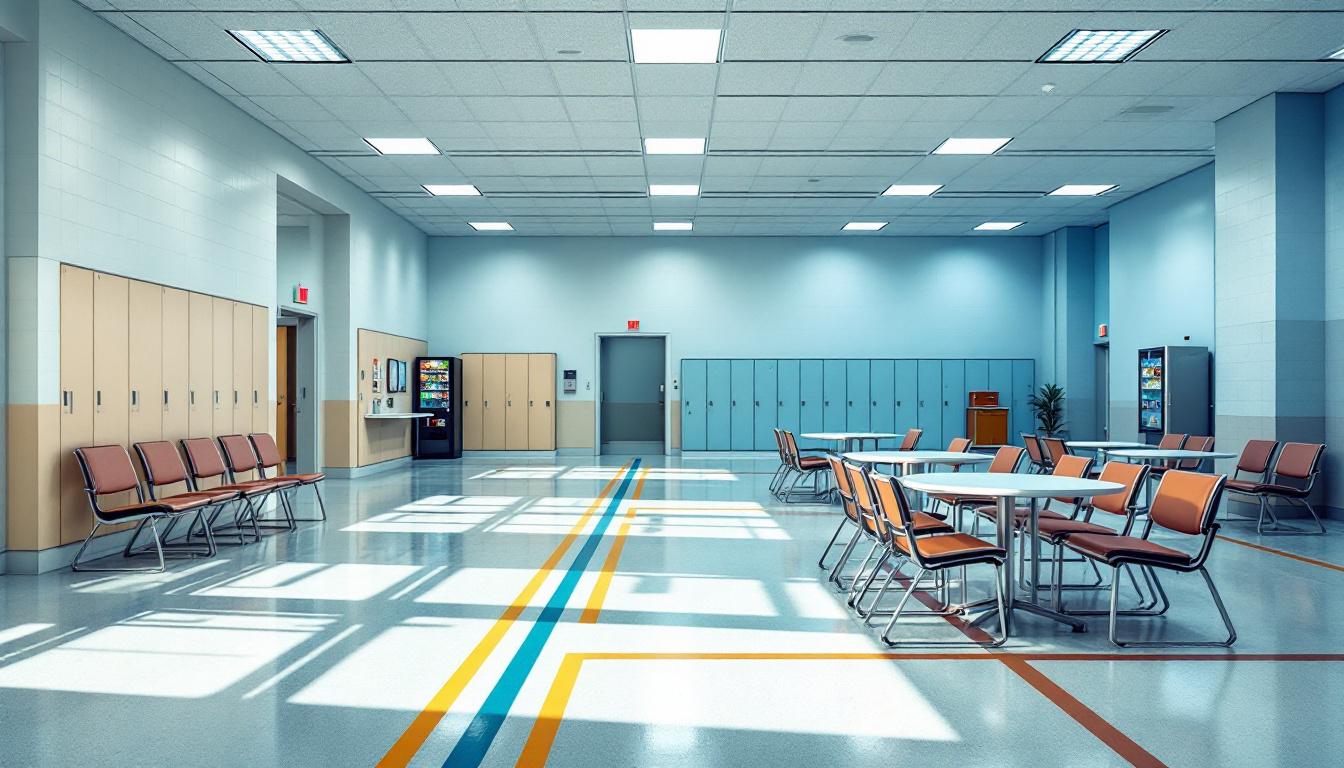
Structured routines currently form the backbone of residential life, with consistent daily schedules that continue to provide residents with predictable frameworks for their time. Wake-up procedures typically occur at designated morning hours, followed by meals served at regular intervals throughout the day. The facility generally maintains organized count times and movement periods that help residents navigate their daily activities in an orderly manner.
Housing units at Franklin County Jail typically accommodate residents in various configurations, with sleeping arrangements that may include dormitory-style or individual cell housing depending on classification levels. Residents usually receive basic bedding and personal hygiene items, while commissary services often provide opportunities to purchase additional comfort items and snacks. Additionally, the facility generally maintains visiting schedules that allow family members and approved contacts to maintain connections through scheduled visits, phone calls, and correspondence.
Programming opportunities typically deliver structured activities that help residents utilize their time constructively during their stay. Work assignments may include kitchen duties, facility maintenance, and cleaning responsibilities that contribute to daily operations. While recreational periods often provide physical activity and social interaction opportunities, educational programming and library services frequently offer learning resources. The facility usually coordinates these activities within the broader daily schedule, ensuring residents have access to various constructive options while maintaining security protocols and operational requirements.
Ready to Connect?
Start communicating with your loved one today
Search for an Inmate
